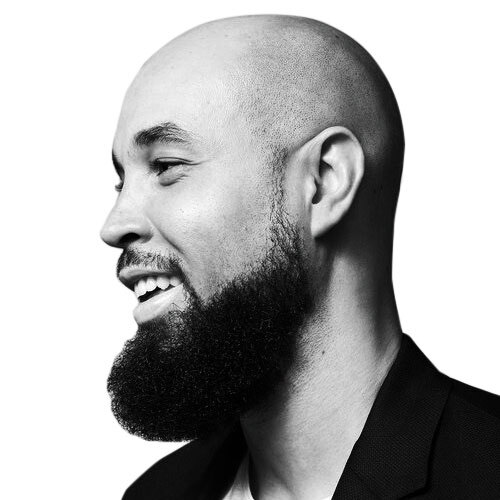My lady tells me I’m paranoid. But in these polarizing times, I’d rather be safe than hosing yokels off my lawn. That’s why I immediately deactivated my Facebook, Instagram and Twitter once ABC told me the Black-ish episode “Please, Baby, Please” was finally going to air, two years after its intended air date. When we originally finished the episode, creator/writer Kenya Barris and I made jokes about how its unfavorable critique of Trump meant one or both of two things:
- We were going to be audited into oblivion.
- The Klan was going to pull up.
So all of that terror came rushing back when I got the call, and I subsequently scrubbed my digital fingerprint. Plus, I have six kids now (two are adopted, four are fostered; I’m not a Black dad stereotype) and I’d prefer them not watch me knuckle up with some Proud Boy lunatic who followed social media breadcrumbs to my house.
However, this episode finally airing isn’t all crippling, blood-in-my-underpants anxiety. There’s some swelling pride, too.
Actually, there’s a lot of that.
“Lemons” is one of my favorite Black-ish episodes. It was a fair and balanced assessment of the 2016 election in a time when this country couldn’t have been more divided. While I practically choked on my own rage, I marveled at how Kenya managed to give equal voice to both sides. So when he asked me if I wanted to help him take a crack at doing a sequel to that episode, naturally, I had blood in my underpants.
I’m realizing I often have blood in my underpants. I should probably get that checked.
Producing the episode was no easy feat. The idea to animate the children’s story was actually born out of how difficult we knew it would be (given the time constraints of television) to clear all of the clips we wanted. However, once we decided to go in that direction, we realized it would actually better illustrate the episode’s premise—Dre is reading a bedtime story to the restless child that is America.
The concept sold itself. The children’s story became Spike Lee and Tonya Lewis Lee’s book Please, Baby, Please, with artwork from painter Kadir Nelson. And suddenly I was collaborating with multiple members of the Mount Rushmore of Black excellence.
The work of producing didn’t stop there. Nearly every song, sound and moment in that episode started some sort of fire, and it required personal phone calls to talent, attorneys, or broadcast standards and practices to put it out. It became very clear very early on that we had bitten off more than we could chew. However, we were committed to the importance of the message, so we stayed the course, we made concessions, we littered the cutting room floor. The finished product felt fair, it felt like a worthy sequel, and I was beyond honored to have been a part of it.
If you know me, you know I’ve had a very hard go at life. I’ve lost a lot of people, I’ve got burns, I’ve got scars, I’ve got concussions. Point is, I’ve been through some shit and this still royally kicked my ass.
Make no mistake—the world not being fair is not and was not news to me. As a minority in America, I’m preposterously accustomed to things not going my way. Still, it felt like Black-ish was a protective bubble in which we were free to tell our truth. It felt like a place where we were always at liberty to be ourselves.
For my entire professional career up until Black-ish, I was the only Black person in any given room. Black-ish was the first time I was able to sit around a table with a room full of Black people and other hungry, marginalized “onlys” (the only woman, the only Indian American, etc). Kenya channeled our eagerness, championing a type of storytelling that required us to go inward. It forced us to dig deep into the recesses of our own experiences and share our secrets with the world. Black-ish succeeded because we put our lives on the screen. And together we all made each other better; we all made each other whole.
So when the episode was shelved, my utopia went up in smoke. Wakanda wasn’t real. The emperor had no chill. To say I was crushed would be insulting.
There’s been a lot of criticism about what the shelving says about ABC; however, I don’t think it’s warranted. Do I agree with what they did? Of course not. I didn’t work that hard on “Please, Baby, Please” for no one to see it. However, ABC could’ve easily swept it under the rug with the rest of America’s dark secrets. But they didn’t, and I’ll always appreciate them for it.
Plus, I can still feel the phantom likes on my amputated social media accounts.
At the end of the day, I’m so happy Kenya and I finally got to share this episode with the world. And like any notable episode of Black-ish, I hope it continues to inspire healthy dialogue. But, friends: please text me when it’s safe to come up for air. I’m not on TikTok anymore.
The Black-ish episode “Please, Baby, Please,” originally intended to air in 2018, is now available to stream on Hulu.

